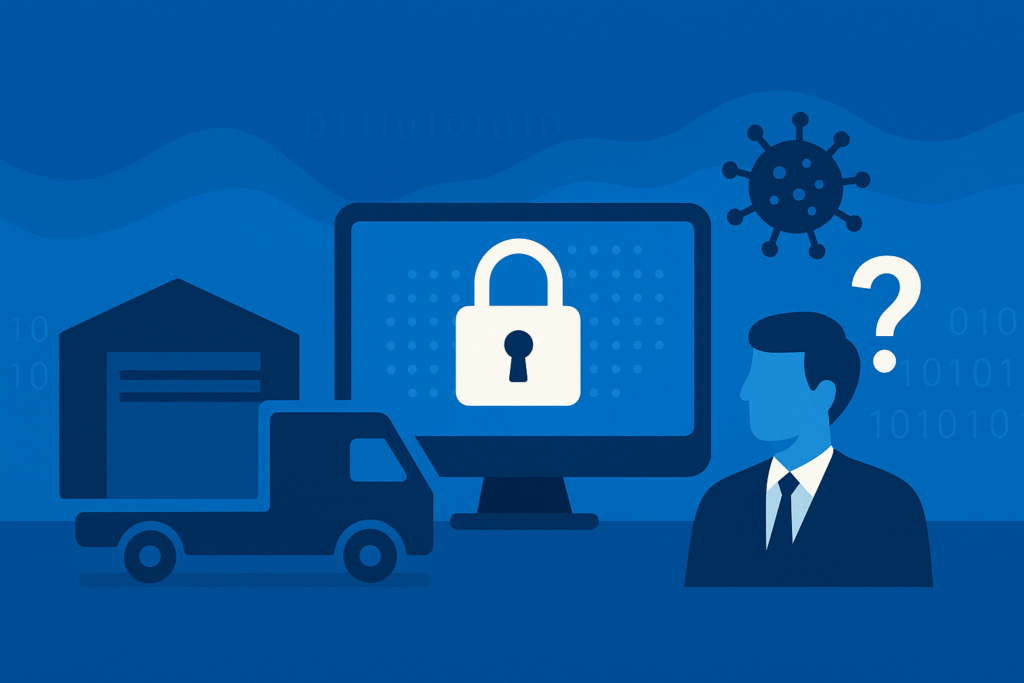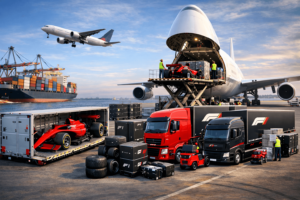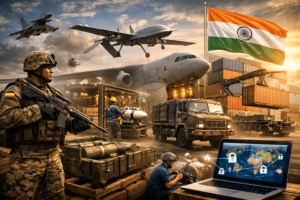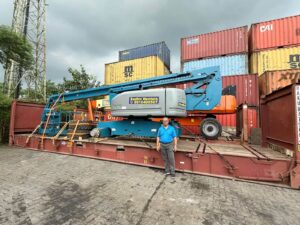
How a Viral Trend Exposed Your Logistics Data at Risk
Artificial Intelligence is revolutionizing the logistics industry, becoming as indispensable as a morning cup of coffee. From AI-powered chatbots handling customer queries to machine learning optimizing routes and advanced analytics forecasting demand, AI drives efficiency and accuracy like never before.
But recent viral trends reveal a growing concern: AI systems may be extracting and exposing far more sensitive data than we intend. A popular example from India involved an AI image model generating a photo with a tiny mole on a user’s arm—an intimate detail never shared with the AI. This raises an important question: What confidential information might logistics companies be unknowingly sharing when using AI tools?
AI: The Digital Assistant with a Privacy Challenge
Studies show that while much AI use is benign, about 8.5% of AI prompts contain sensitive data. Given the thousands of AI interactions daily in logistics, this number multiplies exponentially. Alarmingly, 93% of workers admit to sharing confidential information via AI tools, with 38% admitting to sharing data they wouldn’t even casually confide to a friend.
This culture shift stirs deep concerns about data privacy in an industry where security and confidentiality must be paramount.
The Magnitude of the Privacy Risk in Logistics
Several studies reveal the breadth of the problem:
- Cisco’s 2024 Data Privacy Benchmark found that although 27% of organizations temporarily banned generative AI, nearly half (48%) still input non-public company information into AI.
- A staggering 99% of organizations have inadvertently exposed sensitive data to AI systems, a vulnerability amplified in logistics, which impacts every supply chain link.
- Procurement teams, customer service, and operations often feed contracts, routing algorithms, shipping patterns, supplier pricing, and strategic plans into AI tools.
Gartner forecasts that by 2027, 40% of AI data breaches will result from cross-border misuse of generative AI—posing a critical threat to international logistics firms.
Real-World AI Data Breaches and Their Impact
This is not hypothetical. In 2025, open-source large language models are expected to leak data in over 52.5% of cases. Samsung famously banned generative AI apps for its employees in May 2023 due to privacy risks.
Within logistics, a coordinator once entered client delivery schedules and drop-off points into an AI routing app. Unbeknownst to the company, this data stored externally created a detailed client operational map, highly valuable to competitors.
Such breaches erode customer trust, invite regulatory fines, and damage businesses.
Trust Deficit and Regulatory Wake-Up
Consumer trust is fragile. Fortunately, regulatory bodies are stepping up enforcement:
- Italy fined OpenAI in December 2024 for unlawful data processing.
- Increasingly stringent regional laws demand logistics firms balance innovation with responsibility, ensuring client data protection.
Charting a Responsible Path Forward
Ditching AI is not the answer—its operational benefits are too critical. Instead, logistics companies must adopt responsible AI integration by:
- Establishing robust data classification—deciding what information is safe for external AI processing.
- Investing in secure enterprise AI platforms that prevent third-party data access, as exemplified by Three Crowns’ deployment of Microsoft Copilot.
- Conducting regular employee training to raise awareness on AI privacy risks and data protection.
- Implementing security audits and continuous monitoring to detect unauthorized data exposure swiftly.
Convenience Must Be Matched with Vigilance
That mole on the AI-generated saree photo wasn’t a glitch—it was a wake-up call. In logistics, where trust and confidentiality underpin client relationships, careless AI data sharing threatens reputations and operations.
The true choice isn’t convenience versus security. It’s thoughtful AI adoption paired with stringent data stewardship versus reckless exposure. AI will shape the future of logistics, but only if wielded with foresight and responsibility.










